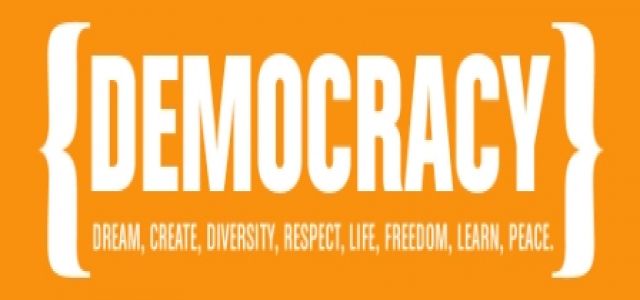|
|||||||||
| :: Issues > Political Islam Studies | |||||||||

Islamists gain from Mideast turmoil and democratic deficit
The Arab world is “a juxtaposition of many ideologies, identities, and governance Systems,” a new report from the Henry L. Stimson Center suggests. To understand current political trends it is essential to employ “a multi-level analysis that encompasses the wide range of identities and ideologies, from personal and tribal identity to concepts of statehood and nationhood.”
|
|||||||||
| Sunday, August 3,2008 03:43 | |||||||||
|
|||||||||
|
The Arab world is “a juxtaposition of many ideologies, identities, and governance Systems,” a new report from the A vibrant public discourse is taking place across the Arab world, argues Lebanese analyst Rami Khouri. “The region is in the process of defining itself,” he says, “and more actors than ever before have a voice in that turbulent process.” The two principal reasons for the political and national turbulence across the region are, firstly, that most Arab states were established by the “self-determining will of their own citizens or validated by democratic and accountable mechanisms of governance.” Religious, tribal, and ethnic borders do not coincide with those of the state in many Arab countries, fomenting majority/minority tensions and a lack of state legitimacy. The second reason is that, over the past 50 years, most Arabs “experienced very erratic state development and have been denied political and personal rights.” Denied the option of seeking redress of grievances through political institutions, people turn to “subaltern identities-tribe, religion, ethnicity, village, neighborhood, and militia.” Despite this democratic deficit, liberal democrats are probably the weakest of the several principal ideological forces operating across the Democrats are losing out to “mainstream Islamists“, the largest single constituency in the region. Khouri considers Hamas and Hizbullah, along with the Muslim Brotherhood, as “relatively moderate, mostly nonviolent” Islamist movements which engage in democratic elections. The other major forces are radical Salafist terrorist groups; American-led Western hegemony, represented by states like Jordan and Egypt; anti-imperial defiance - the region’s “oldest continuous ideological force in the region”; tribalism, as reflected in Kuwait, Yemen, and Jordan where a degree of liberalization produced parliaments dominated by tribal candidates (a Jordanian editor recently noted that the country has gone more than three decades without parties or party politicians, a major reason why Jordan “failed to build political institutions”); and Pan-Arabism which, while eclipsed Islamism as the dominant populist ideology, remains an “amorphous, intangible sentiment” among ordinary citizens. Khouri appears to see these forces as self-contained and even incompatible. Yet, contrary to progressive opinion that tribalism is regressive, some Arab liberals are reassessing the role of tribes, at least in Despite the weakness of the region’s democrats, many in the Arab world see democracy as a desirable goal, Khouri concludes, but see sovereignty and legitimate, independent government as more urgent priorities.
|
|||||||||
|
Posted in Political Islam Studies |
|||||||||
|
|||||||||
|
|
|||||||||
| Related Articles | |||||||||
|
|






